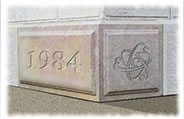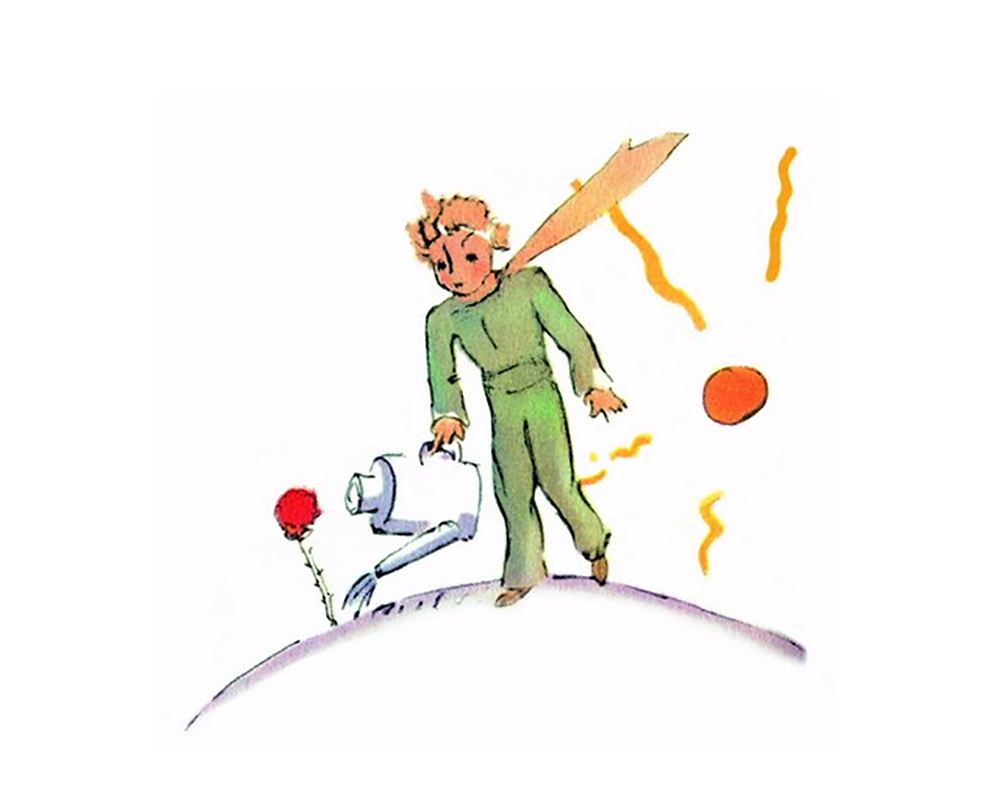The Soft Stuff is the Hard Stuff
“I have also a flower,” declared the little prince as he tried to describe his planet to a geographer.
“We do not record flowers,” said the geographer.
“Why is that? The flower is the most beautiful thing on my planet!”
“We do not record them,” said the geographer, “because they are ephemeral.”
Excerpt from The Little Prince
Antoine de Saint-Exupery
(1900 —1943)
Author, Poet, Aviator
As individuals, we tell stories to each other, and about each other as a means of gaining, sharing, and transmitting insight into who we are, how we operate and what kind of people we are.
It’s the same with companies.
Culture is ephemeral — a living thing which must constantly be refreshed then passed from one person to another, often preserved in the form of stories.
“Corporation” is a generic business structure. The hottest ad agency is a corporation. So is a sleepy bank; so is a funeral home. We can usually tell the bank from the funeral home, and certainly from the ad agency — not so much by their corporate structures — but by the atmosphere, the attitude, the culture.
As managers, we often find it difficult to create the distinction between our [generic] firm and the [generic] competition. We suggest that this battle is begun and won first in the hearts and minds of the employees, then the customers; and it is won through culture, transmitted as stories. If you win the “battle” with the employees, they will bring the customers and the marketplace along by repeating the story, which has now become theirs.
Our job as leaders is to establish the basics: legal form, financial assumptions, and structure — the building, desks, chairs, etc. For many classically trained managers — that’s “The Hard Stuff.” And that’s the job. Game Over!
But maybe we’re missing something…
A new player needs to know the Rules of course.
What do we do here? What’s the product? What’s the price? What’s the point of difference? You know, the facts. The hard facts.
But then, there’s the soft, sticky stuff…
What makes this place different? What do we do that can’t be copied? Why should I show up smiling in the morning? Why is this company just flat out “Cool!?”
These are obviously “The Soft Stuff.” But they constitute the crucial difference between an organization that has a soul, a style, a team spirit, a winning attitude… as opposed to well, everybody else.
Here’s a formula for establishing a culture: Define, Demonstrate, Pass Along.
One: DEFINE
In order for a culture to take form and shape, it must first be defined — laid down in the succinct forms of shell documents, but also as mission/purpose and vision/ideal scene statements. At this stage, it’s still a dream, but well documented. And shared.
Two: DEMONSTRATE
Once defined in writing, the culture must come to life through demonstration — and be proven in practice — by senior players — converting definitions and assertions into fact.
It’s Ephemeral, but now, it Lives!
Three: PASS ALONG
For proven Ideas and Actions to assume the stature of Cultural Cornerstones, they must become immortal in the form of Stories — passed along from one generation to the next. Now the culture lives forever in the retelling. Most companies define their point of view, their reasons for existing, in their charters — where they remain buried in the generic documents that issue from the attorneys and go directly to the secretary/treasurer for burial. Seldom read, they don’t rise to the level of getting anyone awake, much less excited. Many management teams let go of the reins right there, never taking the firm beyond the generic state. It’s difficult to be loyal to a mere corporate form.
But what if something ephemeral could be added to make the generic form unique? Perhaps easier to get with the program? Then, what if management demonstrated the proposition — while telling the Story of the Founder? What if they showed a little style, a little fire? Now the team has the idea, a form, a proven process, and a story to tell — now the combination can become a treasure — a shared culture. It’s ephemeral, it lives, and is shared by everyone!
There are manuals for policies, networks for electronic communication, and departments for sales, product development and actuarial planning. There are generally accepted rules for accounting, scheduling, reporting; then there are customs for treating everyone from the boss to the shoeshine professional and of course, software applications for everything. We need all that hard stuff to set us up! But to set us apart, it’s all about ephemera — culture and stories.
The Big Lesson here, is that the Soft Stuff is the Hard Stuff!
Applications
1. For You
There’s a fair number of hard assets which comprise a life: a house, a bank account, a significant job… Yet, in the absence of affection, respect, community and family, those accumulated assets may leave one feeling full, but empty at the same time. So, despite our culture of acquisitiveness; “working a job we hate, to acquire money to buy things we don’t need to impress people we don’t like;” perhaps it’s time to re-evaluate our situation and give a bit more credence to integrity, reserve, character, dignity, honesty, community, and service. A proper balance would seem to be everything.
2. For the Family
Culture begins at home, when a parent says, “We do it this way in our family.” Next, there are the “ways” of the school, the community, the spiritual training. The “Ways” are ephemeral, but serve to distinguish this place, this family, this school, this spiritual base, from all others. As your kids begin to appreciate, then cultivate their own uniqueness, they’ll acquire the insight and judgement to infuse their own lives with creativity, style, and uniqueness.
3. For the Workplace
Certainly, it has to function. It must serve customers, employees, owners, and managers. But there’s a mean quality to mere survival, and this is no longer a pioneer culture on the plains. We’re now more aware, more observant that there’s a richer, more abundant sense of accomplishment when we not only do the basics, but give our work a character, a style, a sense of abundance and even… joy.
The soft stuff, as it turns out, makes the hard stuff worth doing and having.
Subscribe to our Newsletter


